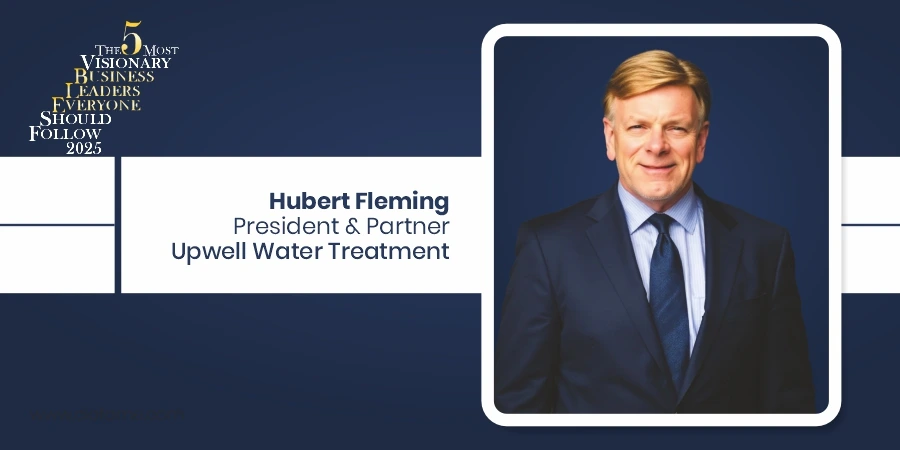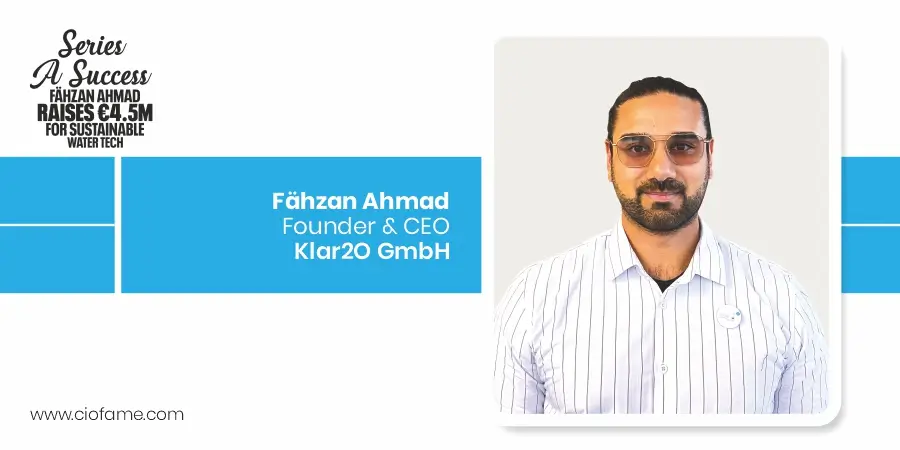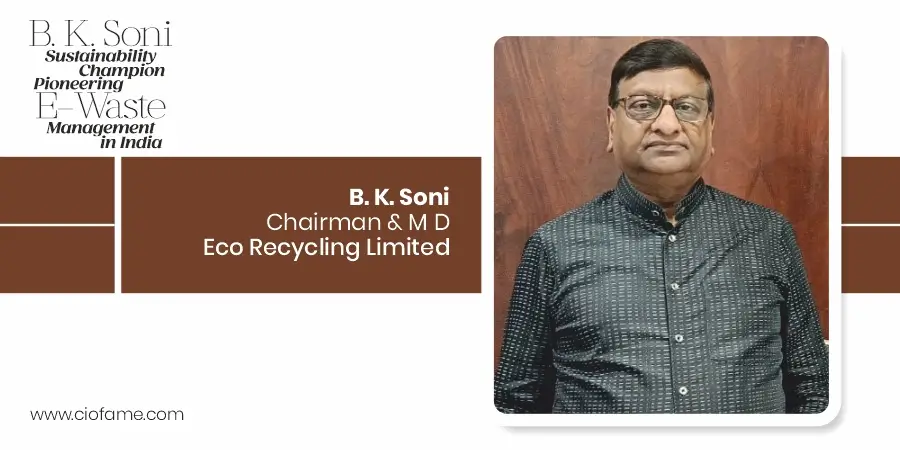Every visionary leader begins with a defining moment, not when they reach the top, but when they see beyond it. Think of Andrew Grove, the former CEO of Intel, who predicted how technology would reshape human life. Grove’s genius wasn’t in building chips; it was in seeing decades ahead and daring to pivot before the world caught up. His legacy lies in foresight, transformation, and resilience.
Today, that same spirit of purposeful reinvention lives on in Hubert Fleming. His career spans the intersection of infrastructure, innovation, and impact. He has led startups to successful exits, expanded global firms across continents, and now champions sustainability in one of the world’s most vital sectors, water. Through bold investments, forward-looking projects, and a global leadership mindset, he’s redefining what it means to build for the future.
So, what drives Hubert’s enduring influence, and why is he being recognized as one of the most visionary business leaders to follow in 2025? Let’s explore the story behind the strategist, the innovator, and the global builder.
A Global Architect in Water Innovation
Dr. Hubert Fleming holds a PhD in Engineering and an MBA in International Finance, credentials that have given him a uniquely balanced lens between technical mastery and business foresight. He began his career as a young engineer and quickly emerged as a transformative force in the water industry.
A defining early moment was joining Zenon Environmental, a startup that he helped grow into a publicly traded company before its successful acquisition. That experience laid the foundation for what would become a pattern in his career: identify potential, scale responsibly, and lead with impact.
Later, he took on a leadership role at Severn Trent, one of the largest UK-based water firms, where he expanded its global operations. His influence deepened during his time at Hatch Ltd, a major engineering and construction firm, where he led global expansion during pivotal water growth surges in Australia, South America, and the Middle East in the 2000s.
Over the past decade, Fleming has turned his focus to investment: sourcing, acquiring, and nurturing water-focused companies while continuing to drive innovation in a sector critical to the future of the planet.
Experience Across Borders
Asked how his multinational experience has shaped his leadership, Fleming pointed to the value of global awareness. Managing international operations, he shared, “requires a very broad view, of both the global marketplace, and the differences in doing business, as well as managing people from very diverse cultures.” That breadth of perspective has driven him to adopt a global—not U.S.-centric—worldview, a key component of his leadership philosophy.
Defining Visionary Leadership
So, what does visionary leadership mean in today’s world?
According to Fleming, it’s the ability to “constantly identify emerging trends in doing business, evolving in real time, to adapt to changing market dynamics.”
For him, being visionary also means planning 5 to 10 years ahead and building sustainably, not to meet today’s needs, but to prepare for those of tomorrow. It’s about creating what the market will need, not just fulfilling what it currently demands.
Spotting Opportunity, Building Strategy
Fleming’s approach to identifying opportunity is rooted in immersion and strategy. “Identifying emerging opportunities means constantly being in touch with leaders in the water industry,” he said.
Hubert emphasizes the importance of staying connected to industry dialogue, whether around threats, opportunities, or shifts in government policy. “The key is being able to assimilate all these data into a coherent strategy, and act in real time.”
Values That Anchor Vision
Fleming’s decision-making is guided by a set of deeply held principles: inclusivity, collaboration, ethics, and accountability.
“I like to be inclusive, make group decisions where possible, get buy-in to key decisions,” he shared. But once a decision is made, he takes full ownership, “I take responsibility, for making it happen.”
The goal, always, is to act in the best interest of as many stakeholders as possible, in a way that’s both ethical and sustainable.
Blue Brine: A Milestone Close to the Heart
One of the most striking examples of Fleming’s visionary leadership is the Blue Brine project in Texas, a multi-hundred-million-dollar effort to build the world’s largest brine recovery facility.
In an era where waste management is a global priority, this project exemplifies a shift toward turning environmental liabilities into valuable resources. Fleming’s team led the initiative from the front: designing, funding, and executing a facility that turns waste brine into reusable products. “We took a leadership role in making this happen,” he explained. “We knew we would need to demonstrate to the world the value of such an approach.” It’s a bold vision made tangible.
Technology and Data at the Core
Fleming is adamant that strategy must be grounded in facts, not instincts alone. “I focus on making fact-based decisions. Too often, decisions are made emotionally or with inherent bias.”
He also underscored the centrality of technology in modern infrastructure. “In my industry, technology is critical. Use and acceptance of state-of-the-art, developing technology is necessary to make state-of-the-art water projects successful.” It’s a message that reflects both pragmatism and optimism: using tools wisely to maximize long-term value.
Words for the Next Generation
What advice would he give to emerging business leaders?
“Stay flexible, make fact-based decisions based upon the data in the market,” he said. “Be agile, then decisive.” It’s simple but powerful wisdom, particularly for those operating in uncertain environments.
The Qualities of Global Visionaries
In Fleming’s view, becoming a globally recognized leader requires more than intellect or charisma. “Be willing to embrace change, make a plan, deliver on that plan, remain committed,” he advised. “Focus on big ideas, with a global or large impact.”
A Personal Mantra
Asked for a personal success quote, Fleming turned to the words of Albert Schweitzer: “Success is not the key to happiness. Rather, happiness is the key to success. If you love what you are doing, you will be successful.” It’s a mantra that captures the spirit behind his own journey: decades of service to an industry he’s deeply passionate about.
Fuel Behind the Drive
So, what’s driven him all these years?
For Fleming, the answer is clear: family. “I grew up very poor. So, it’s been my father, my uncle Harley, my grandfather, and my mother, each in their own way,” he said. Their influence, combined with his upbringing, instilled in him the drive to build a better future.
A Life of Gratitude
Reflecting on his journey, Fleming said, “I’ve been extremely blessed. I’m at a place where I never expected to be when I began. The key has been remaining engaged, continuing to strive to do more, be better each day, and be grateful for all successes.”
A Moment of Recognition
Being featured as a cover leader for “The 5 Most Visionary Business Leaders Everyone Should Follow, 2025” is a reflection of his enduring impact.
“It’s the culmination of a 40+ year career of service to the global water industry,” he said. “It means being recognized as a successful contributor on a global scale in my field of endeavor, and by my peers.”
Hubert Fleming’s career is defined by decades of sustained innovation, grounded leadership, and a relentless drive to serve the greater good. As he looks to the future, the foundation is already set. The systems he’s built, the values he champions, and the people he’s inspired will continue to ripple across industries and borders.
And for those navigating the future of infrastructure, water, or sustainability, following his lead isn’t just wise. It’s essential.









